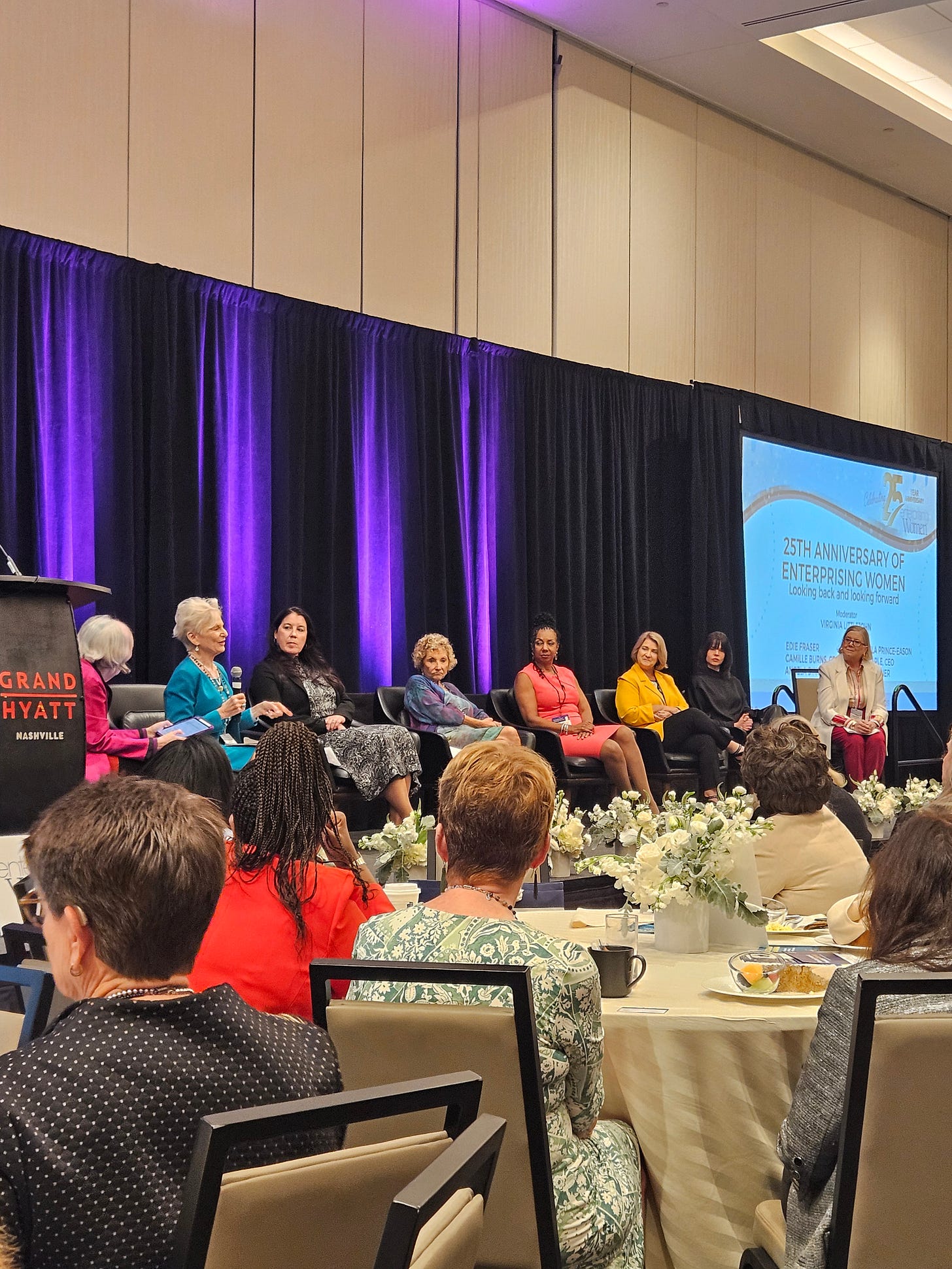In 1975, there was a group of a dozen women business owners in Washington DC who got together to talk about how they could help each other grow their companies. They had tried to join the Chamber of Commerce and the Rotary Club, but were turned away from both because only men were allowed to be members. So they decided to start their own organization. Within just a couple years, that organization had opened up chapters across the country and became known as the National Association of Women Business Owners, or NAWBO.
In the early 1980s, the NAWBO board realized that in order to make a real difference for women entrepreneurs, they had to get involved in public policy and advocate for changes in the laws and regulations that were holding them back. And in 1988, they were the driving force behind the passage of HR5050, the Women’s Business Ownership Act. HR5050 had four main pillars: 1) requiring the Census Bureau to count women-owned C- and S-Corporations in the Census, because previously only sole proprietorships were counted, which meant that women-owned businesses were severely undercounted; 2) established the Women’s Business Center program; 3) established the National Women’s Business Council to advise the President, Congress, and SBA on issues related to women-owned businesses; and 4) made it illegal for banks to require that women get a male co-signer in order to get a business loan.
Most people thought that it was already illegal for banks to require male co-signers. In 1974, the Equal Credit Opportunity Act was passed that allowed women to have credit in their own names - bank accounts, mortgages, car loans, etc. But that law didn’t include business loans, because at the time, it didn’t occur to the Congress that a woman would ever need a business loan. So many banks still required a male co-signer for a business loan. And if the woman was unmarried, divorced, or widowed, her father had passed away, and she had no brothers, her only option was her teenage son. And if she didn’t have one of those, she was SOL.
Anyway, when HR5050 passed in October 1988, I was in college, majoring in business, and I had no idea that any of this was happening. Entrepreneurship was barely discussed as a career option, even in business classes.
In the 1990s and early 2000s, when I was building my career working for some of the large consulting/accounting firms, several new organizations focused on helping women-owned businesses were formed: the Women President’s Organization (WPO), the Women Business Enterprise National Council (WBENC), and Women Impacting Public Policy (WIPP), and others.
And in 2000, Monica Smiley looked at the business magazines, like Inc. and Entrepreneur, and realized that women business owners rarely showed up in their pages. So she started Enterprising Women magazine. And for the past 25 years, she has highlighted the stories of women entrepreneurs from across the US and around the world.
When I started my first business in 2001, I joined NAWBO and was introduced to the women’s entrepreneurial ecosystem. I was president of the DC NAWBO chapter in 2008, and was invited to a reception on Capitol Hill to celebrate the 20th anniversary of HR5050. That was the first time I really understood the vision and the blood, sweat, and tears that were shed by the founding mothers of this movement.
This weekend I am in Nashville attending and speaking at the Enterprising Women’s 25th anniversary annual conference & awards event. The first session this morning was extraordinary - a panel focused on the history of the women’s entrepreneurship movement that started 50 years ago. The current leaders of those various groups that were founded decades ago were all together on the stage, talking about the impact they’ve had on the women they’ve served.
The organizations represented by these amazing women continue to educate, advocate for, and connect women business owners today. Which is more important than ever, as corporations and public-sector organizations are doing away with “supplier diversity” programs.
The women business owners I know through my 20+ year membership in NAWBO and participation on the Enterprising Women Advisory Board for the last 10 years are strong leaders committed to serving their customers with the highest quality products and services. They are NOT “DEI hires” - their companies are just as good as any other. What was lacking was opportunity and a level playing field.
In June, NAWBO will celebrate 50 years since that group of 12 women business owners first decided to build their own table. And I am incredibly proud to have been a part of this organization that has positively impacted millions of other women over the last five decades.



